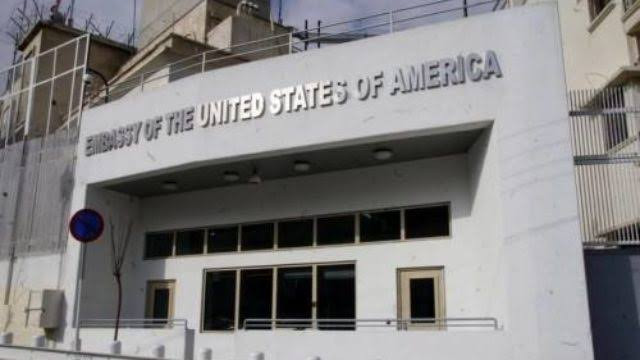News
Japa: 9 Reasons For Visa Rejection At The US Embassy

Are you a Japa enthusiast looking to make the move to the United States, but worried about handling the complex visa application process? You are not alone! Every year, thousands of Nigerians apply for US visas, but a significant number face rejection.
But fear not, as understanding the complexities and common pitfalls of the visa application process is the first step toward overcoming them.
Here are 9 reasons why your visa might be rejected at the US embassy and tips on how to avoid them.
Inaccurate details about travel arrangements
Inconsistencies or uncertainty in travel plans, such as unclear purpose of visit or accommodation arrangements, can raise doubts about the legitimacy of the trip. This lack of clarity may result in visa denial as authorities seek to ensure the authenticity and integrity of visa applications. Ensure all details provided are accurate and truthful to avoid penalties or criminal prosecution.
Incomplete application
During the US visa application process, it is important to pay close attention to details. When filling the application form to Japa, ensure details such as name, date of birth, passport number,are entered correctly. Mistakes or missing information on the form can cause delays or rejection. It is necessary to carefully review the form, understand each question, and provide accurate and thorough answers.
Insufficient documentation
Identify the exact visa type you are applying for, as each category has its own set of required documents. Failure to submit all necessary supporting documents can lead to visa application rejection. Be sure to carefully review the checklist provided by the US embassy or consulate.
Criminal records
Having a criminal record or any negative immigration history can be grounds for visa rejection, and killing your dreams to japa. If you have been convicted of a crime before, disclose this information on your application and be ready to discuss it further during the interview. Being transparent about your past can increase your chances of obtaining a visa.
Insufficient financial proof
Depending on the visa type, applicants must show they have enough funds to cover their expenses while in the US. This involves submitting bank statements, income tax returns, and other financial documents. Failure to provide sufficient financial documentation or inconsistencies in financial statements may raise doubts about the applicant’s ability to support themselves during their visit, and lead to the application being unsuccessful.
Not demonstrating strong ties to home country
Visa officers evaluate whether applicants possess strong ties to their home country and are probable to return after their US visit. These ties include steady employment, property ownership, family connections, and other commitments. Applicants should provide evidence of their ties to their home country to reassure the visa officer of their intent to return.
Lack of preparation for the interview
Many visa categories mandate an in-person interview at the US embassy. Applicants should diligently prepare for the interview by acquainting themselves with the purpose of their trip, comprehending the visa requirements, and articulating their travel plans clearly. Lack of preparation or inability to answer questions about the trip may cast doubt in the visa officer’s mind, potentially resulting in visa denial.
Overstaying on a previous visa
Having overstayed a previous valid visa in the US can lead to visa rejection and reducing the chances to japa. It is crucial to understand that regardless of the type of visa previously held or whether the current visa is the same type, this action can result in visa rejection.
Non-compliance with immigration requirements
The US immigration law is intricate and frequently evolving, emphasizing the importance of staying updated with the latest requirements. Before applying for a visa, ensure that you are well-informed about all relevant rules and regulations.
By understanding these obstacles and taking proactive steps to address them, you can navigate the US visa application process with greater confidence and move one step closer to your American dream.

